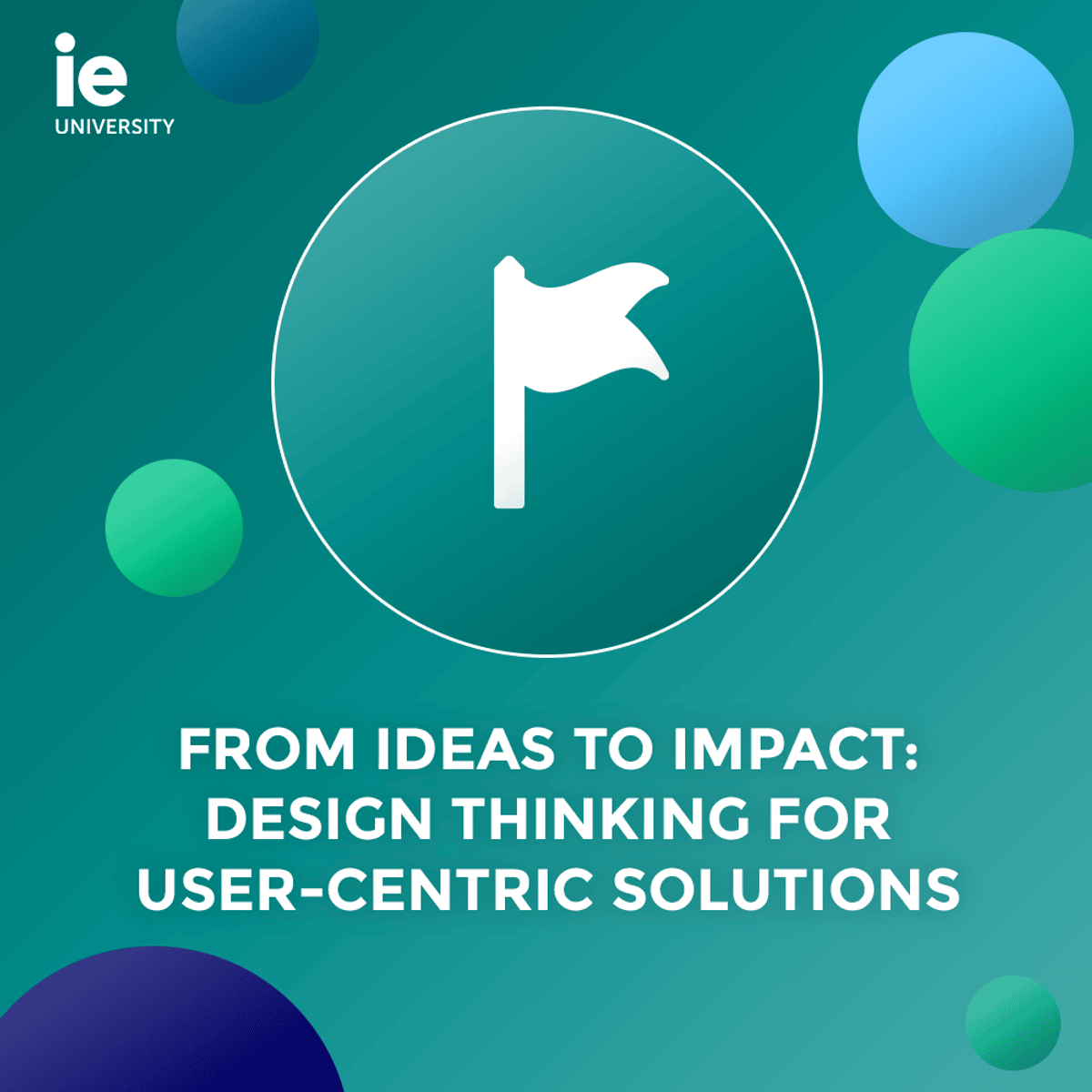Human-Centered Design
Comprehensive Guide to Human-Centered Design
Human-Centered Design (HCD) is a problem-solving approach that places the needs, behaviors, and experiences of people at the forefront of the entire design and development process. Its core objective is to create solutions—be it products, services, systems, or experiences—that are not only functional and usable but also deeply resonate with and are tailored to the target audience. This means going beyond mere utility to understand the "why" behind user actions and preferences, ensuring that the final output is intuitive, accessible, and genuinely enhances the user's life or work.
Working in Human-Centered Design can be incredibly engaging. Imagine the excitement of deeply understanding diverse groups of people, uncovering their unmet needs, and then collaboratively crafting innovative solutions that directly address those needs. There's a profound satisfaction in seeing a design come to life and positively impact individuals and communities. Furthermore, HCD often involves working in multidisciplinary teams, bringing together diverse perspectives from fields like psychology, engineering, and business to tackle complex challenges in creative ways. This collaborative and iterative nature, filled with research, ideation, and testing, makes for a dynamic and constantly evolving work environment.
Introduction to Human-Centered Design
This section will delve into the fundamental aspects of Human-Centered Design, exploring its definition, historical roots, and its distinction from similar methodologies. We will also touch upon its critical role in addressing multifaceted problems across various sectors.
Definition and Primary Objectives
Human-Centered Design (HCD) is an approach to problem-solving that prioritizes the human perspective in every step of the process. The primary objective is to create solutions that are not only effective and efficient but also enhance human well-being, satisfaction, and accessibility. This methodology involves deeply understanding the users, their context, and their needs through observation, engagement, and empathy.
At its core, HCD aims to ensure that products, services, and systems are intuitive, enjoyable, and truly meet the needs of the people they are intended for. This involves a continuous cycle of listening to users, generating ideas, prototyping solutions, and testing them in real-world scenarios. The goal is to arrive at solutions that are not just technically sound but also emotionally resonant and contextually appropriate.
A key tenet of HCD is the belief that the people facing the problems are often best equipped to help design the solutions. By involving users throughout the design journey, HCD fosters a sense of ownership and ensures that the final outcome is both relevant and sustainable.
Historical Development and Key Milestones
The conceptual roots of Human-Centered Design can be traced back to the mid-20th century, with early influences from fields like ergonomics and human factors, which focused on optimizing human well-being and overall system performance. Professor John E. Arnold at Stanford University is often credited with proposing in 1958 that engineering design should be human-centered, laying some of the earliest groundwork. This period coincided with the rise of creativity techniques and the design methods movement of the 1960s.
A significant figure in the evolution of HCD is Donald Norman, a cognitive scientist. His 1988 book, "The Design of Everyday Things," became a cornerstone, emphasizing the importance of designing products that are intuitive and easy to use by understanding user psychology. He introduced concepts like affordances and signifiers, which are fundamental to how designers think about user interaction. Around the same time, the term "user-centered design" gained prominence, particularly with the publication of "User-Centered System Design: New Perspectives on Human-Computer Interaction" in 1986, co-edited by Norman and Stephen Draper, which highlighted user involvement in designing computer systems.
The late 1990s saw a shift from a purely technology-driven focus to a more "humanised" one, where HCD began to be seen more as a mindset than just a set of tools. Design firms like IDEO played a significant role in popularizing HCD and Design Thinking, applying these principles to a wide range of challenges beyond just product design. Today, HCD is recognized as a powerful framework for innovation across various industries and societal contexts.
Differentiation from User-Centered Design and Similar Methodologies
While often used interchangeably, Human-Centered Design (HCD) and User-Centered Design (UCD) can have nuanced differences, though both prioritize the end-user. UCD tends to focus more specifically on the direct interaction between a user and a product or system, emphasizing usability and task efficiency. It’s about ensuring that a particular product is easy and effective for its intended user to achieve their goals.
HCD, on the other hand, often takes a broader view, considering the entire human experience within a larger context. It delves deeper into the psychological, emotional, and social aspects of the user's life, aiming to understand not just *how* people use things, but *why* and what broader needs and aspirations are at play. Some see HCD as an evolution of UCD, encompassing a more holistic and empathetic approach.
Design Thinking is another related methodology. It's often described as a process or a toolkit for innovation that heavily incorporates HCD principles, especially empathy and iteration. While HCD is the overarching philosophy of putting humans first, Design Thinking provides a structured approach (often involving phases like empathize, define, ideate, prototype, and test) to apply that philosophy to solve complex problems. Essentially, HCD is the "why" and "what," while Design Thinking often provides the "how."
These distinctions can be subtle, and in practice, the terms are frequently blended. The common thread, however, is a fundamental commitment to understanding and designing for the people who will ultimately use and be impacted by the solution.
Importance in Solving Complex Societal and Business Problems
Human-Centered Design plays a crucial role in tackling complex societal and business challenges by ensuring that solutions are relevant, adopted, and sustainable. For businesses, an HCD approach can lead to products and services that genuinely meet customer needs, fostering increased satisfaction, loyalty, and ultimately, profitability. By deeply understanding user pain points and motivations, companies can innovate more effectively, reduce the risk of developing ill-fitting solutions, and create stronger brand connections.
In the societal sphere, HCD offers a powerful framework for addressing intricate issues like healthcare access, educational disparities, and community engagement. By involving the communities themselves in the design process, solutions are more likely to be culturally appropriate, embraced by the intended beneficiaries, and lead to meaningful, long-term impact. This participatory approach empowers individuals and can help address systemic inequities by ensuring diverse voices are heard and considered. The iterative nature of HCD also allows for adaptation and refinement as understanding of the problem evolves, which is critical for complex, multifaceted societal issues.
Ultimately, HCD's emphasis on empathy and understanding human behavior allows for the creation of interventions that are not just technically feasible but also humanly desirable and contextually viable.
To begin your journey into understanding the core ideas of designing for people, these resources can be quite helpful.
These foundational books are widely considered essential reading for anyone interested in the field.Core Principles of Human-Centered Design
This section outlines the fundamental tenets that guide the practice of Human-Centered Design, forming the bedrock of its problem-solving methodology. These principles ensure that the human perspective remains central throughout the design process.
Empathy and User Research Methodologies
Empathy is arguably the cornerstone of Human-Centered Design. It involves deeply understanding and sharing the feelings, thoughts, and experiences of the people you are designing for. This goes beyond simply collecting data; it's about developing a genuine connection and appreciation for their perspectives, motivations, and challenges. Cultivating empathy allows designers to uncover unmet needs and identify opportunities for meaningful innovation.
User research methodologies are the tools and techniques employed to build this empathetic understanding. These can range from ethnographic studies, where researchers immerse themselves in the users' environment to observe their behaviors and context, to in-depth interviews, surveys, focus groups, and persona development. Journey mapping, for instance, helps visualize the user's experience over time, highlighting pain points and moments of delight. The goal of these methodologies is to gather rich, qualitative insights that inform every stage of the design process, ensuring solutions are grounded in real human needs.
These courses offer practical insights into gathering user data and fostering empathy.
Iterative Prototyping and Testing Cycles
Iterative prototyping and testing are fundamental to the Human-Centered Design process, ensuring that solutions evolve based on continuous user feedback. Instead of aiming for a perfect solution in the first attempt, HCD embraces a cyclical approach: build a rough representation of an idea (a prototype), get it in front of users for testing, gather feedback, and then refine the prototype based on those insights. This cycle is repeated multiple times, with each iteration bringing the design closer to meeting the users' actual needs and preferences.
Prototypes can range from simple paper sketches or storyboards in the early stages to more interactive digital mockups or physical models as the concept develops. The key is to make ideas tangible quickly and cheaply, allowing for early identification of what works and what doesn't. Testing with real users at each stage helps to validate assumptions, uncover usability issues, and generate new ideas, significantly reducing the risk of investing heavily in a flawed solution. This continuous feedback loop is crucial for creating products and services that are not only functional but also intuitive and enjoyable to use.
This course provides a hands-on approach to applying HCD principles, including prototyping and testing.
Inclusivity and Accessibility Standards
Inclusivity and accessibility are vital principles within Human-Centered Design, ensuring that solutions are usable and beneficial for the widest possible range of people, regardless of their abilities, age, gender, cultural background, or other characteristics. Inclusive design proactively considers the diversity of human experience from the outset, aiming to create products and services that welcome everyone and avoid creating barriers. Accessibility specifically focuses on designing for people with disabilities, ensuring they can perceive, understand, navigate, and interact with a product or system effectively.
Adhering to accessibility standards, such as the Web Content Accessibility Guidelines (WCAG) for digital products, is a practical application of these principles. However, true inclusivity goes beyond mere compliance. It involves empathetic engagement with diverse user groups, understanding their unique needs and perspectives, and co-designing solutions that empower them. By prioritizing inclusivity and accessibility, HCD not only broadens the potential user base but also fosters social equity and creates more robust and user-friendly experiences for everyone.
This course specifically addresses designing for inclusivity.
Collaboration Across Disciplines
Collaboration across disciplines is a hallmark of effective Human-Centered Design. Solving complex human problems rarely falls within the expertise of a single field. HCD thrives on bringing together individuals with diverse backgrounds, skills, and perspectives—such as designers, engineers, researchers, psychologists, business strategists, and subject matter experts—to work towards a common goal.
This interdisciplinary approach fosters a richer understanding of the problem space and leads to more holistic and innovative solutions. Engineers might bring technical feasibility insights, psychologists can offer understanding of human behavior, while business analysts can ensure the solution is viable. By working collaboratively, teams can challenge assumptions, spark creativity through varied viewpoints, and ensure that all facets of the user experience and implementation are considered. Effective communication, mutual respect, and a shared commitment to the user are key to successful cross-disciplinary collaboration in HCD.
This course explores how design thinking, a close relative of HCD, is applied in a collaborative context.
The Human-Centered Design Process
This section details the typical stages involved in a Human-Centered Design project. It will illustrate how feedback mechanisms are integrated and provide a real-world example to contextualize the process. We will also identify common tools that practitioners use.
Stages: Research, Ideation, Prototyping, Testing, Implementation
The Human-Centered Design process is typically characterized by a series of interconnected stages, though the exact naming and number of phases can vary. A common framework includes Research, Ideation, Prototyping, Testing, and Implementation. These stages are not always strictly linear; often, designers will cycle back and forth between them as they learn more.
The Research phase (often called Discovery or Empathy) is where designers seek to deeply understand the users, their context, needs, and pain points. This involves activities like user interviews, observation, and creating personas. The Ideation phase focuses on generating a wide range of potential solutions to the identified problems, encouraging creative thinking and exploring diverse possibilities without initial judgment. Techniques like brainstorming and "How Might We" questions are common here.
Following ideation, Prototyping involves creating tangible representations of the most promising ideas. These can be low-fidelity (e.g., paper sketches) or high-fidelity (e.g., interactive mockups). The purpose of Testing is to gather feedback on these prototypes from actual users, identifying what works, what doesn’t, and areas for improvement. This feedback directly informs further iterations of the design. Finally, the Implementation phase involves developing and launching the refined solution, though HCD principles suggest that monitoring and iteration should continue even after launch to ensure ongoing relevance and effectiveness.
Role of Feedback Loops in Refining Solutions
Feedback loops are the lifeblood of the Human-Centered Design process, ensuring that solutions are continuously refined and aligned with user needs. At every stage, from initial research to post-implementation, HCD actively seeks input from users and stakeholders. This feedback provides critical insights that help designers validate assumptions, identify flaws, uncover new opportunities, and make informed decisions about the direction of the design.
During prototyping and testing, for example, user feedback directly informs the next iteration of the design. If a prototype is confusing or doesn't meet user expectations, the feedback loop allows the design team to understand why and make necessary adjustments before investing significant resources in development. This iterative process, fueled by constant feedback, helps to de-risk innovation by ensuring that the solution evolves in response to real-world use rather than being based solely on internal assumptions. Even after a solution is implemented, feedback mechanisms like surveys, user reviews, and analytics continue to provide valuable data for ongoing improvements and future iterations.
Case Study Example (e.g., Healthcare Product Redesign)
Imagine a scenario where a hospital wants to improve the experience of patients managing chronic conditions at home using a mobile application. Applying a Human-Centered Design process, they would begin with the Research phase. This might involve interviewing patients with various chronic illnesses, their family caregivers, and healthcare providers. They might observe how patients currently manage their conditions, their frustrations with existing tools (including the current app), and their unmet needs. Personas could be developed, such as "Maria, a 70-year-old with diabetes struggling with medication reminders" or "David, a 45-year-old recently diagnosed with hypertension, feeling overwhelmed by information."
Next, in the Ideation phase, a multidisciplinary team (designers, developers, doctors, nurses, and even patient representatives) would brainstorm solutions. Ideas could range from simplified medication tracking, personalized educational content, easier communication with care teams, to gamified adherence programs. Moving to Prototyping, the team might create paper sketches of new app screens, then develop interactive wireframes. These prototypes would be put through Testing with patients like Maria and David. Feedback might reveal that Maria needs larger fonts and simpler navigation, while David wants more visual data on his progress.
Based on this feedback, the prototypes are refined. This iterative cycle of prototyping and testing might occur several times. Perhaps testing reveals a need for integration with wearable health devices, a feature not initially considered. Once the design is robust and well-received, the Implementation phase begins, where the app is developed and launched. However, HCD doesn't stop there. Post-launch, the hospital would continue to gather feedback through app reviews, surveys, and usage analytics to identify further areas for improvement and future updates, ensuring the app continues to meet the evolving needs of its users.
This course can help you understand how to apply HCD to real-world challenges.
Tools Commonly Used (e.g., Journey Maps, Wireframes)
Human-Centered Designers employ a diverse toolkit to support their work through the various stages of the design process. During the research and empathy-building phase, tools like User Personas (fictional representations of target users) and Empathy Maps help consolidate and visualize user needs, goals, and pain points. Customer Journey Maps are invaluable for understanding the end-to-end user experience, identifying touchpoints, and pinpointing areas for improvement.
In the ideation phase, techniques like Brainstorming (often facilitated with sticky notes and whiteboards, physical or digital) and Storyboarding (visualizing user scenarios) help generate and communicate ideas. When moving to prototyping, designers use tools to create Wireframes (basic screen blueprints showing layout and structure) and more detailed Mockups (static visual designs). For interactive prototypes, software like Figma, Sketch, or Adobe XD are commonly used, allowing designers to simulate user flows and interactions. Usability testing tools, both for in-person and remote testing, help capture user feedback effectively. Collaboration platforms also play a crucial role in enabling teams to share work and communicate throughout the process.
These courses introduce fundamental tools and techniques in UX/UI design, which are integral to HCD.
This book is a classic guide for information architecture, a key component of creating understandable systems.Applications in Various Industries
Human-Centered Design is not confined to a single sector; its principles and methodologies are highly adaptable and have found impactful applications across a wide array of industries. This section will highlight how HCD is leveraged to drive innovation and improve outcomes in diverse fields such as healthcare, technology, public policy, and education.
Healthcare: Patient Experience Optimization
In healthcare, Human-Centered Design is increasingly used to optimize the patient experience, leading to better health outcomes and increased satisfaction. This involves understanding the patient's journey not just within the clinical setting, but also before they arrive and after they leave. Designers might map out the entire experience, from scheduling an appointment and navigating the hospital, to understanding a diagnosis and managing treatment at home.
By empathizing with patients' anxieties, frustrations, and needs, healthcare providers can redesign services, communication strategies, and physical environments. For example, HCD can lead to clearer medical billing, more comfortable waiting rooms, patient portals that are easier to navigate, or medical devices that are intuitive for elderly patients to use. The focus is on reducing stress, improving clarity, and empowering patients to be active participants in their own care. Co-designing solutions with patients and healthcare professionals ensures that innovations are practical and genuinely address the real-world challenges faced by those navigating the complexities of health and illness.
The following courses offer insights into applying design principles within the healthcare and MedTech sectors.
Technology: UX/UI Design Frameworks
In the technology sector, Human-Centered Design is the bedrock of effective User Experience (UX) and User Interface (UI) design. UX design focuses on the overall experience a person has when interacting with a digital product, like a website or mobile app, ensuring it's logical, intuitive, and enjoyable. UI design is concerned with the visual layout and interactivity of the product – the buttons, icons, typography, and overall aesthetic. HCD principles guide both disciplines to ensure technology serves human needs, rather than forcing humans to adapt to the technology.
Frameworks and methodologies rooted in HCD, such as Agile UX and Lean UX, emphasize rapid prototyping, user testing, and iterative development. Designers create personas, map user journeys, conduct usability tests, and gather feedback to continuously refine the product. The goal is to create digital experiences that are not only functional but also engaging, accessible, and solve real problems for users. This focus on the human element is critical for product success in a competitive tech landscape where user satisfaction often dictates adoption and loyalty.
These courses offer a grounding in UX/UI design, central to tech applications of HCD.
Consider these books for deeper dives into user experience. You may also be interested in these related topics:Public Policy: Community Engagement Strategies
Human-Centered Design is increasingly being applied in public policy to develop more effective and equitable community engagement strategies and services. Traditionally, policy development can be a top-down process. HCD flips this by starting with the citizens themselves – understanding their needs, experiences, and challenges with existing public services or societal issues. This involves ethnographic research within communities, co-design workshops where citizens and policymakers collaborate, and prototyping new services or policies on a small scale before wider implementation.
For example, HCD could be used to redesign how a city provides information about affordable housing, making it more accessible and understandable for those who need it most. It could also inform the design of community policing initiatives by fostering empathy and dialogue between law enforcement and residents. By placing citizens at the heart of the policy design process, governments can create services that are more responsive, utilized, and ultimately lead to better outcomes for the community. This approach can also build trust and a stronger sense of civic participation.
Education: Curriculum Co-creation with Stakeholders
In the field of education, Human-Centered Design offers a powerful approach to curriculum development and the design of learning experiences by actively involving all stakeholders – students, teachers, parents, and administrators. Instead of a one-size-fits-all model, HCD encourages educators to first deeply understand the diverse needs, learning styles, and aspirations of their students. This might involve classroom observations, interviews with students and teachers, and workshops to co-create educational solutions.
Curriculum co-creation using HCD principles can lead to more engaging, relevant, and effective learning materials and methods. For instance, students might be involved in designing projects that connect to their interests and local context. Teachers could collaborate on developing new pedagogical approaches that better cater to different learning abilities. The iterative nature of HCD allows for piloting new curriculum ideas, gathering feedback, and making refinements to ensure they genuinely enhance the learning process and prepare students for the future. This approach fosters a more student-driven and adaptable educational environment.
This course explores social innovation, which often uses HCD principles in educational and community contexts.
Formal Education Pathways
For those aspiring to build a career in Human-Centered Design, or to integrate its principles into their existing profession, formal education provides structured learning and recognized credentials. This section explores various academic routes, from undergraduate studies to doctoral research, and highlights key areas of coursework.
Undergraduate Programs in Design or Psychology
Several undergraduate pathways can lay a strong foundation for a career in Human-Centered Design. Degrees in Graphic Design, Industrial Design, or Interaction Design often incorporate HCD principles, teaching students about user research, prototyping, and visual communication. These programs typically emphasize practical design skills and portfolio development. You can explore many of these options by browsing design courses on OpenCourser.
Alternatively, a bachelor's degree in Psychology, particularly with a focus on cognitive psychology or human factors, can be an excellent entry point. These programs provide a deep understanding of human behavior, perception, cognition, and research methodologies, all of which are critical to understanding user needs and motivations in HCD. Students learn how people think, learn, and interact with the world, which directly informs user-centered design decisions. Some universities even offer specialized tracks or minors in Human-Computer Interaction (HCI) or User Experience (UX) within their psychology departments. Further exploration can be done by looking into psychology programs.
Regardless of the specific major, students interested in HCD should seek out courses and projects that involve user research, problem-solving, and iterative design. Building a strong portfolio showcasing HCD projects is also crucial for entry-level positions.
Graduate Degrees Focusing on HCD Research
For individuals seeking to deepen their expertise and potentially lead research or complex design initiatives, graduate degrees offer specialized pathways in Human-Centered Design. Master's programs in Human-Computer Interaction (HCI), User Experience (UX) Design, Interaction Design, or Service Design are increasingly common and provide intensive training in HCD methodologies, advanced research techniques, and strategic design thinking. These programs often involve significant project-based work, allowing students to build a substantial portfolio and gain practical experience.
Many graduate programs are interdisciplinary, drawing faculty and students from design, computer science, psychology, and business. This reflects the collaborative nature of HCD in professional practice. Students in these programs typically engage in rigorous user research, learn sophisticated prototyping and testing methods, and explore the theoretical underpinnings of how people interact with technology and services. A focus on research within these degrees prepares graduates to not only apply HCD principles but also to contribute to the evolving knowledge and best practices within the field.
PhD Opportunities in Interdisciplinary Studies
For those aspiring to become leading researchers, academics, or high-level strategists in Human-Centered Design, pursuing a Doctor of Philosophy (PhD) offers the most advanced level of study. PhD programs relevant to HCD are often found within interdisciplinary departments or schools that bridge design, computer science, information science, psychology, cognitive science, and even fields like anthropology or sociology. This interdisciplinary nature allows doctoral candidates to explore HCD from multiple theoretical and methodological perspectives.
PhD research in HCD can cover a vast range of topics, from developing new design methodologies and evaluating the societal impact of technology, to exploring ethical considerations in AI and designing for specific vulnerable populations. Candidates are expected to conduct original research that makes a significant contribution to the field. A PhD in an HCD-related area can lead to careers in academia, research institutions, or high-level research and leadership roles in industry, shaping the future of how technology and services are designed to meet human needs.
Key Courses: Design Thinking, Ethics, Behavioral Science
Across various educational pathways in Human-Centered Design, certain types of courses are fundamental to building a comprehensive understanding and skillset. Design Thinking courses are crucial as they provide a structured framework for innovation, emphasizing empathy, ideation, prototyping, and testing. These courses often involve hands-on projects that simulate real-world design challenges.
Courses in Ethics are increasingly important in HCD. As designers create products and services that profoundly impact people's lives, understanding the ethical implications of design choices is paramount. This includes topics like data privacy, algorithmic bias, accessibility, and the societal impact of technology. Ethical considerations ensure that HCD is practiced responsibly and for the betterment of individuals and society.
Behavioral Science courses, including cognitive psychology, social psychology, and behavioral economics, provide essential insights into how people think, make decisions, and behave. Understanding these principles helps designers create more intuitive, persuasive, and effective solutions. For example, knowledge of cognitive biases can inform the design of interfaces to prevent errors, while understanding motivation can help in designing engaging experiences.These courses offer foundational knowledge in areas crucial to HCD.
This book provides a good overview of design principles.Online Learning and Self-Directed Study
For individuals looking to pivot careers, supplement formal education, or simply acquire new skills, online learning and self-directed study offer flexible and accessible pathways into Human-Centered Design. This section explores the viability of these routes and how to make the most of them.
OpenCourser is an excellent resource for learners embarking on this journey, offering a vast catalog of online courses in design and related fields. The platform makes it easy to search through thousands of options, save courses to a personalized list, compare syllabi, and read summarized reviews to find the perfect fit for your learning goals. For those on a budget, checking the OpenCourser deals page can uncover limited-time offers on courses and other learning resources.
Feasibility of Transitioning Careers via Self-Study
Transitioning into a Human-Centered Design career through self-study and online learning is indeed feasible, though it requires dedication, discipline, and a strategic approach. The abundance of high-quality online courses, workshops, and free resources has made HCD knowledge more accessible than ever. Many successful practitioners in the field have built their expertise through non-traditional paths, leveraging online platforms to learn core principles, methodologies, and tools.
The key to a successful transition is not just consuming content but actively applying it. This means engaging in hands-on projects, seeking feedback, and iteratively improving your skills. Building a strong portfolio of work that showcases your HCD process and problem-solving abilities is crucial for demonstrating competence to potential employers. While a formal degree can provide a structured foundation, a compelling portfolio and the ability to articulate your design thinking can be equally, if not more, persuasive in the job market. Networking with professionals in the field, participating in online communities, and seeking mentorship can also significantly support a self-directed career transition.
OpenCourser's Learner's Guide offers valuable articles on topics such as creating a structured curriculum for yourself and how to remain disciplined when self-learning, which can be particularly helpful for career changers.
These courses are excellent starting points for those looking to build foundational HCD skills through online learning.
Curating Project Portfolios for Job Applications
A strong project portfolio is arguably the most important asset for anyone seeking a job in Human-Centered Design, especially for those relying on self-study or transitioning from other fields. Your portfolio is where you demonstrate your understanding of HCD principles, your process, your skills, and your ability to solve real problems. It should go beyond just showcasing final designs; it needs to tell the story of *how* you arrived at those solutions.
Each project in your portfolio should clearly articulate the problem you were trying to solve, the users you were designing for, the research methods you employed, your ideation process, how you prototyped and tested your ideas, and the rationale behind your design decisions. Include artifacts like personas, journey maps, wireframes, and user testing insights. Even if projects are self-initiated or conceptual, they should demonstrate a rigorous HCD approach. Focus on quality over quantity, ensuring each case study is well-documented and visually compelling. Tailor your portfolio to the types of roles you are applying for, highlighting the skills and experiences most relevant to those positions.
Balancing Theoretical Knowledge with Practical Workshops
A successful journey into Human-Centered Design, particularly through self-directed learning, involves striking a balance between acquiring theoretical knowledge and gaining hands-on practical experience. While understanding the theories, principles, and frameworks of HCD is essential, this knowledge truly comes to life when applied in practice. Online courses and books can provide the theoretical foundation, explaining concepts like empathy, iteration, and usability.
However, to develop tangible skills, it's crucial to engage in practical workshops, bootcamps, and hands-on projects. These experiences allow you to apply what you've learned in a real or simulated design challenge, work through the HCD process, use design tools, and collaborate with others. Many online platforms offer project-based courses or specialized workshops that focus on specific HCD skills like user research, prototyping, or UX writing. Actively seeking out these practical opportunities will help solidify your understanding, build your confidence, and provide valuable content for your portfolio.
This course provides a hands-on experience applying human-centered design to real-world challenges.
This book offers practical guidance for individuals working in UX.Micro-credentials for Specialized Skills
Micro-credentials, such as certificates from online courses or specialized training programs, can be valuable for demonstrating specific skills and knowledge in Human-Centered Design, particularly for those building their careers through self-study or looking to specialize. These credentials can signal to employers that you have invested time in learning particular aspects of HCD, such as accessibility design, UX research, UI design, or service design.
While a micro-credential alone may not be a substitute for a full degree or extensive experience, it can enhance your resume and portfolio, especially when combined with strong project work. They can be particularly useful for filling skill gaps or for showcasing expertise in emerging areas of HCD. When choosing micro-credentials, consider the reputation of the issuing institution or platform and whether the curriculum aligns with current industry practices. OpenCourser's Learner's Guide includes articles on how to earn a certificate from an online course and how to add it to your LinkedIn profile or resume, which can help you leverage these credentials effectively.
Many online courses offer certificates upon completion, which can serve as micro-credentials.
Career Opportunities and Progression
A background in Human-Centered Design opens doors to a variety of fulfilling career opportunities across numerous industries. As organizations increasingly recognize the value of understanding and designing for their users, the demand for HCD professionals continues to grow. This section will explore typical entry-level roles, pathways for career transition, the nature of freelance versus in-house work, and potential leadership trajectories.
For those exploring these opportunities, OpenCourser’s "Career Center" section on course pages can be a valuable resource. It often lists relevant career roles and job titles, providing descriptions and helping learners understand the potential career paths a particular course or skill set can open up.
Entry-Level Roles: UX Researcher, Service Designer
For individuals starting their careers in Human-Centered Design, several entry-level roles provide excellent opportunities to apply HCD principles and gain practical experience. One common path is as a UX Researcher. In this role, you would be responsible for conducting user interviews, surveys, usability tests, and other research activities to understand user behaviors, needs, and motivations. The insights generated by UX Researchers are foundational to the entire design process.
Another exciting entry-level opportunity is that of a Service Designer. Service design focuses on creating or improving services to make them more user-friendly, efficient, and effective. This involves looking at the entire ecosystem of a service, including all touchpoints and interactions, both digital and physical. Entry-level service designers might assist in mapping customer journeys, co-creating service blueprints, and prototyping new service concepts.
Other common entry points include roles like Junior UX Designer, UI Designer, or Design Researcher. Regardless of the specific title, these roles typically involve supporting senior designers and researchers, contributing to various stages of the HCD process, and continuously learning and honing their skills.
Mid-Career Transitions from Adjacent Fields
Professionals in adjacent fields like marketing, graphic design, software development, psychology, or even project management often find that their existing skills and experiences provide a strong foundation for transitioning into Human-Centered Design mid-career. Marketers, for example, already possess an understanding of customer behavior and market research, which aligns well with the user research aspects of HCD. Graphic designers bring visual communication skills crucial for UI and interaction design.
A successful transition often involves identifying transferable skills, such as empathy, problem-solving, communication, and analytical thinking. Supplementing these existing strengths with targeted learning in HCD methodologies, tools, and principles through online courses, workshops, or bootcamps is key. Building a portfolio of HCD projects, even if they are speculative or pro-bono, is essential to demonstrate new competencies. Networking with HCD professionals and seeking mentorship can also provide valuable guidance and open doors to opportunities. Many find that their previous industry experience gives them a unique perspective and domain knowledge that is highly valued in HCD roles.
Consider exploring marketing courses or career development resources on OpenCourser to see how your current skills might align.
Freelancing vs. In-House Positions: Pros and Cons
Professionals in Human-Centered Design have the option to work as freelancers (or consultants) or as in-house employees within an organization. Each path offers distinct advantages and disadvantages. Freelancing provides flexibility in terms of projects, clients, and work schedule. Freelancers often have the opportunity to work across diverse industries and tackle a variety of design challenges, which can accelerate learning and broaden experience. However, freelancing also requires strong self-management skills, business development efforts to secure clients, and managing administrative tasks like invoicing and taxes. Income can also be less predictable.
In-house positions offer more stability, regular income, benefits, and often, a clearer career progression path within a single organization. Working in-house allows designers to develop a deep understanding of a particular industry, product, or user base over time. They become integral parts of a team and can influence the design culture of the company. The potential downsides might include less variety in projects compared to freelancing and potentially more bureaucratic processes. The choice between freelancing and in-house work often depends on individual preferences for autonomy, stability, and the type of work environment desired.Leadership Pathways (e.g., Head of Design Roles)
As Human-Centered Design professionals gain experience and demonstrate impact, various leadership pathways can open up. These roles often involve guiding design strategy, managing teams of designers and researchers, and championing user-centricity at an organizational level. Common leadership titles include Design Manager, Lead UX Designer, Head of UX, Director of Design, or even Chief Design Officer (CDO) in larger organizations.
Progression into leadership typically requires not only strong HCD skills but also excellent communication, mentorship, project management, and strategic thinking abilities. Leaders are responsible for setting the vision for design within the company, fostering a collaborative and innovative design culture, and ensuring that design efforts align with business objectives. They often play a key role in advocating for resources, building design teams, and representing the voice of the user in executive-level discussions. Continuous learning and staying abreast of industry trends are also crucial for effective design leadership.
These courses touch upon leadership and innovation, relevant for those aspiring to design leadership roles.
These books discuss innovation and design leadership.Ethical Considerations in Human-Centered Design
While Human-Centered Design aims to create positive experiences and solve problems for people, its practice is not without ethical complexities. As designers wield increasing influence over how people interact with technology and services, it's crucial to navigate these responsibilities thoughtfully. This section addresses key ethical challenges in HCD.
Privacy Concerns in User Data Collection
A core component of Human-Centered Design is user research, which often involves collecting data about people's behaviors, preferences, and personal information. This inherently raises significant privacy concerns. Designers and researchers have an ethical obligation to be transparent with participants about what data is being collected, how it will be used, and who will have access to it. Obtaining informed consent is paramount.
Furthermore, organizations must ensure that collected data is stored securely and used responsibly, only for the purposes for which it was intended. The rise of big data and AI-powered personalization tools amplifies these concerns, as vast amounts of user data can be analyzed to influence behavior, sometimes in ways that are not immediately apparent to the user. HCD practitioners must advocate for privacy-preserving practices, anonymization of data where appropriate, and data minimization (collecting only what is necessary). Striking a balance between gathering enough information to design effectively and respecting individual privacy is a continuous ethical challenge.
This course touches upon the role of data privacy in AI systems, relevant to modern HCD.
Mitigating Bias in AI-Driven Design Solutions
As Artificial Intelligence (AI) becomes increasingly integrated into products and services, mitigating bias in AI-driven design solutions is a critical ethical consideration for Human-Centered Design. AI systems learn from data, and if that data reflects existing societal biases (related to race, gender, age, socioeconomic status, etc.), the AI can perpetuate and even amplify these biases in its outputs and decisions. This can lead to discriminatory outcomes, unfair treatment, and the exclusion of certain user groups.
HCD practitioners have a responsibility to be aware of these potential biases at every stage of the design and development process. This includes carefully examining training data for biases, designing algorithms that are fair and equitable, and testing AI-driven solutions with diverse user groups to identify and address any biased behavior. It also involves advocating for transparency in how AI systems make decisions (explainable AI) so that biases can be identified and challenged. A human-centered approach to AI means ensuring that these powerful technologies serve all users fairly and do not inadvertently cause harm.
This course delves into responsible AI practices, including human-centered design principles for explainable AI.
Environmental Sustainability of Implemented Solutions
The ethical responsibilities of Human-Centered Design extend to considering the environmental sustainability of the solutions created. Every product, service, and system has an environmental footprint, from the resources consumed in its creation and operation to its disposal at the end of its lifecycle. HCD practitioners should strive to design solutions that minimize negative environmental impact and promote sustainability.
This can involve choices about materials (e.g., using recycled or renewable materials), energy efficiency in digital and physical products, designing for durability and repairability to extend product life, and considering the entire lifecycle of a solution. For digital services, this might mean optimizing code for energy efficiency or designing platforms that encourage sustainable behaviors among users. By integrating environmental considerations into the HCD process, designers can contribute to solutions that are not only good for people but also for the planet. This requires a broader systems thinking approach, understanding the interconnectedness of human needs and environmental health.
Long-Term Societal Impacts of Design Choices
Design choices, even those that seem small or innocuous, can have significant and far-reaching long-term societal impacts. Human-Centered Design practitioners have an ethical responsibility to consider these potential consequences beyond the immediate user experience or business goal. For example, the design of social media platforms can influence social interaction, mental well-being, and even democratic processes. The design of autonomous systems can impact employment and safety.
Thinking about these long-term impacts requires a critical and reflective approach. Designers should ask not only "Can we build this?" but also "Should we build this?" and "What are the potential unintended consequences?" This involves engaging with diverse perspectives, considering vulnerable populations, and being willing to challenge assumptions about progress and innovation. Ethical HCD strives to create solutions that contribute positively to society in the long run, promoting well-being, equity, and human flourishing.
This course touches on designing for humanity and societal impact.
Future Trends and Challenges
The field of Human-Centered Design is continually evolving, shaped by technological advancements, shifting societal values, and new understandings of human behavior. This section looks at emerging trends and the challenges that HCD practitioners will likely face in the coming years. Staying informed about these developments is crucial for anyone in or aspiring to join the field.
AI Integration in User Research and Prototyping
The integration of Artificial Intelligence (AI) is poised to significantly transform user research and prototyping in Human-Centered Design. AI tools can analyze vast amounts of user data (e.g., from surveys, app usage, social media) much faster than humans, potentially uncovering patterns and insights that might otherwise be missed. This could lead to more nuanced understandings of user behavior and needs. In prototyping, AI could enable the rapid generation of design variations, automate aspects of UI creation, or even create more sophisticated, adaptive prototypes that respond intelligently to user input during testing.
However, this integration also presents challenges. Ensuring the ethical use of AI in research, avoiding algorithmic bias in insight generation, and maintaining the "human touch" in understanding qualitative nuances are critical. [See The state of AI in 2023: Generative AI’s breakout year from McKinsey & Company for more on AI trends.] Designers will need to learn how to collaborate effectively with AI tools, using them to augment rather than replace human judgment and empathy. The focus will be on leveraging AI to deepen understanding and streamline processes while upholding the core human-centered values.
These courses explore the intersection of AI and design.
Globalization vs. Localization of Design Solutions
A significant ongoing challenge in Human-Centered Design is navigating the tension between globalization and localization. As products and services increasingly reach global audiences, there's a push to create universally understandable and usable designs. However, a one-size-fits-all approach can often overlook crucial cultural nuances, local contexts, and specific user needs in different regions. Effective HCD requires a deep understanding of these local factors to ensure solutions are relevant, respectful, and truly meet the needs of diverse populations.
This means that designers must conduct research and testing with representative users from different cultural backgrounds. Localization goes beyond simple language translation; it involves adapting design elements, imagery, color schemes, and even a product's core functionality to align with local customs, values, and technological infrastructure. The challenge lies in finding the right balance: creating a core product or service that can scale globally while allowing for meaningful localization that enhances the user experience in specific markets. This requires a commitment to ongoing learning and a flexible design approach.
Ethical Debates Around Automation in Creative Processes
The increasing capability of AI and automation tools to perform tasks traditionally considered creative—such as generating visual designs, writing copy, or even composing music—is sparking significant ethical debates within the Human-Centered Design community and beyond. Questions arise about the future role of human designers, the ownership and authorship of AI-generated creative work, and the potential for these tools to devalue human creativity or lead to job displacement.
Furthermore, there are concerns about the homogenization of design if AI tools are trained on limited datasets or if they optimize for common patterns, potentially stifling innovation and diversity in creative expression. HCD principles call for a thoughtful approach to integrating automation, focusing on how these tools can augment human creativity and capabilities rather than simply replace them. The debate also involves considering the impact on the livelihoods of creative professionals and ensuring that the benefits of automation are distributed equitably. Ethical frameworks will need to evolve to guide the responsible development and deployment of AI in creative fields.
Balancing Technological Innovation with Human Needs
A perpetual challenge at the heart of Human-Centered Design is striking the right balance between embracing technological innovation and ensuring that technology genuinely serves fundamental human needs. New technologies often create exciting possibilities, but the pursuit of novelty or technical sophistication should not overshadow the core HCD goal of improving people's lives. There's a risk that designers and organizations can become enamored with the latest technological trends without critically evaluating whether these innovations actually solve real problems or create new ones.
HCD provides the framework for grounding technological development in a deep understanding of human psychology, social context, and practical needs. This means asking critical questions: Does this technology make tasks easier, more enjoyable, or more meaningful? Does it enhance human connection or create isolation? Is it accessible and equitable? The future of HCD will involve continually advocating for a human-centric approach to innovation, ensuring that technology empowers individuals and communities, rather than dictating their experiences or creating undue complexity.
This book explores the challenge of designing for complex systems while keeping human needs central.
This topic is also relevant:Frequently Asked Questions (FAQs)
This section addresses some common questions that individuals exploring Human-Centered Design as a career path or area of study may have. The answers aim to provide clarity and practical insights.
What entry-level jobs are available in HCD?
There are several entry-level job titles for those starting in Human-Centered Design. Common roles include UX Researcher, where you'd focus on understanding user needs and behaviors through various research methods. Another is Junior UX Designer or Associate UX Designer, where you would be involved in creating wireframes, prototypes, and user interfaces under the guidance of senior designers.
Positions like UI Designer focus more specifically on the visual and interactive elements of a design. Some organizations may also have roles like Design Researcher or Interaction Design Intern. Increasingly, companies are also recognizing the need for Service Designers at an entry-level, focusing on the holistic experience of a service. The specific titles can vary, but the core responsibilities usually involve supporting the HCD process through research, ideation, prototyping, and testing.
Is a formal degree required to work in this field?
While a formal degree in a related field like Graphic Design, Psychology, Human-Computer Interaction, or Industrial Design can be advantageous and provide a strong theoretical foundation, it is not always a strict requirement to work in Human-Centered Design. Many successful HCD professionals have transitioned from other fields or are self-taught, leveraging online courses, bootcamps, and extensive self-study.
What often matters more to employers, especially for entry-level and mid-career roles, is a strong portfolio showcasing your HCD projects, process, and problem-solving skills. Demonstrable experience, even from personal projects or freelance work, combined with a solid understanding of HCD principles and methodologies, can be very compelling. However, for more specialized research roles or academic positions, a graduate degree is often expected or required. Ultimately, a combination of relevant skills, a strong portfolio, and the ability to articulate your design thinking are key.
How does HCD experience impact salary growth?
Experience in Human-Centered Design generally has a positive impact on salary growth. As professionals gain more experience, develop specialized skills (e.g., in UX research, interaction design, service design, or specific industry domains), and build a track record of successful projects, their value in the job market increases. Entry-level salaries in HCD are typically competitive, and there is significant potential for growth as one moves into senior, lead, and management roles.
Factors that influence salary growth include the complexity of projects handled, leadership responsibilities, the industry (tech companies often pay more), geographic location, and the ability to demonstrate a clear return on investment for design initiatives. Professionals who can strategically apply HCD to solve significant business problems and drive innovation are particularly well-compensated. Continuous learning and staying updated with emerging trends and tools in HCD also contribute to career advancement and higher earning potential. Data from sources like the U.S. Bureau of Labor Statistics Occupational Outlook Handbook can provide general insights into salary ranges for related design and research professions, although specific HCD roles may not always be distinctly categorized.
Can freelancers thrive in HCD-dominated industries?
Yes, freelancers can certainly thrive in industries where Human-Centered Design skills are in high demand, such as technology, healthcare, finance, and consulting. Many organizations, from startups to large corporations, engage freelance HCD professionals for specific projects, to bring in specialized expertise, or to augment their in-house teams. Freelancing offers flexibility, the opportunity to work on diverse projects, and often, higher hourly rates compared to salaried positions.
To succeed as a freelancer in HCD, it's crucial to have a strong portfolio, excellent self-promotion and networking skills, and the ability to manage client relationships effectively. Specializing in a particular niche of HCD (e.g., mobile UX, SaaS design, healthcare service design) can also help freelancers stand out. While freelancing comes with the challenges of inconsistent income and the need to handle business administration, the demand for skilled HCD practitioners provides ample opportunities for those who are entrepreneurial and can deliver high-quality work.
Which industries have the highest demand for HCD skills?
The demand for Human-Centered Design skills is widespread, but some industries currently exhibit particularly high demand. The Technology sector (including software development, SaaS, mobile apps, and web design) is a major employer of HCD professionals, as user experience is a key differentiator for digital products. The Finance and Fintech industries are also increasingly investing in HCD to improve customer experiences with banking, investment, and insurance services, making complex financial products more accessible and user-friendly. You can explore opportunities in these areas via technology courses and finance & economics courses.
Healthcare is another rapidly growing area for HCD, with a focus on improving patient experiences, designing usable medical devices, and creating effective digital health solutions. E-commerce and retail heavily rely on HCD to optimize online shopping experiences and customer journeys. Furthermore, government agencies and non-profit organizations are increasingly adopting HCD principles to design better public services and social impact initiatives. As awareness of the benefits of HCD grows, demand is likely to expand across even more sectors.How to transition from engineering/marketing to HCD?
Transitioning from fields like engineering or marketing to Human-Centered Design is a common and often successful career pivot. Engineers typically possess strong problem-solving skills, logical thinking, and an understanding of technical feasibility, which are valuable in HCD. To transition, engineers might focus on developing empathy for users, learning user research methodologies, and gaining skills in prototyping and interaction design. Highlighting projects where they considered user needs or improved usability can be beneficial.
Marketers often have a good understanding of consumer behavior, market research, and communication, which align well with the research and empathy aspects of HCD. For marketers, the transition might involve deepening their skills in qualitative research methods, learning design tools, and focusing on translating customer insights into design solutions rather than promotional strategies. For both groups, building a portfolio of HCD projects (even personal or speculative ones), taking relevant online courses, networking with HCD professionals, and emphasizing transferable skills in resumes and interviews are crucial steps. Focusing on the "why" behind design decisions, grounded in user needs, will be key.
Pursuing Human-Centered Design, whether as a dedicated career or as a complementary skillset, offers a rewarding path for those passionate about creating meaningful and effective solutions for people. The journey requires a commitment to continuous learning, empathy, and a willingness to embrace iteration. While challenges exist, the growing recognition of HCD's value across industries provides ample opportunities for growth and impact. By grounding your efforts in a genuine desire to understand and serve human needs, you can contribute to a future where products, services, and systems are more intuitive, accessible, and ultimately, more human.
























